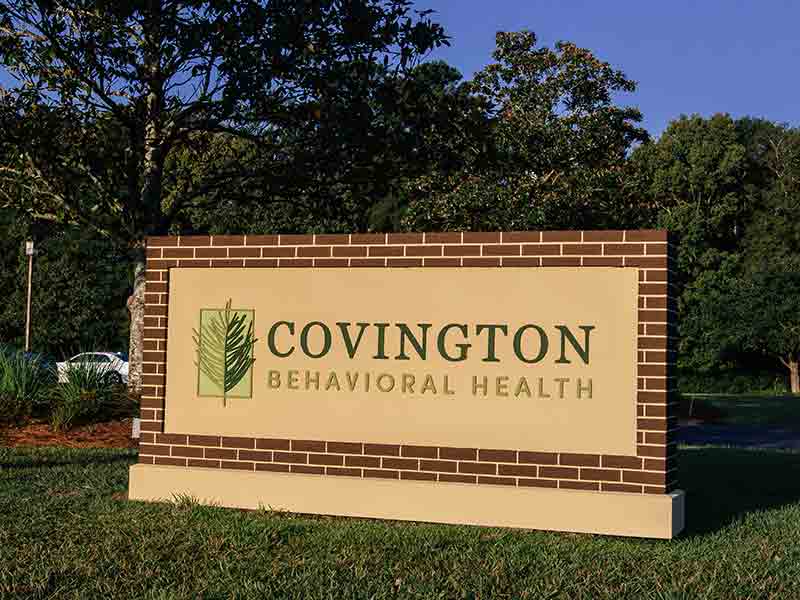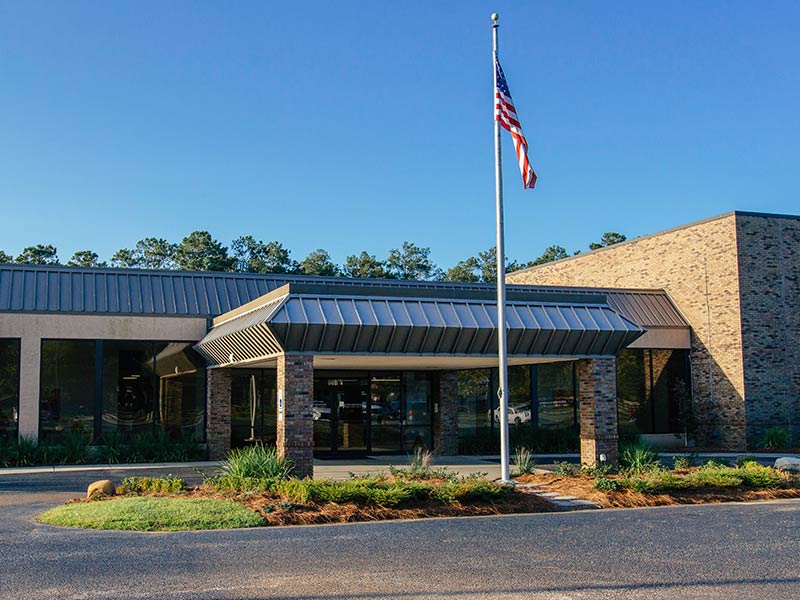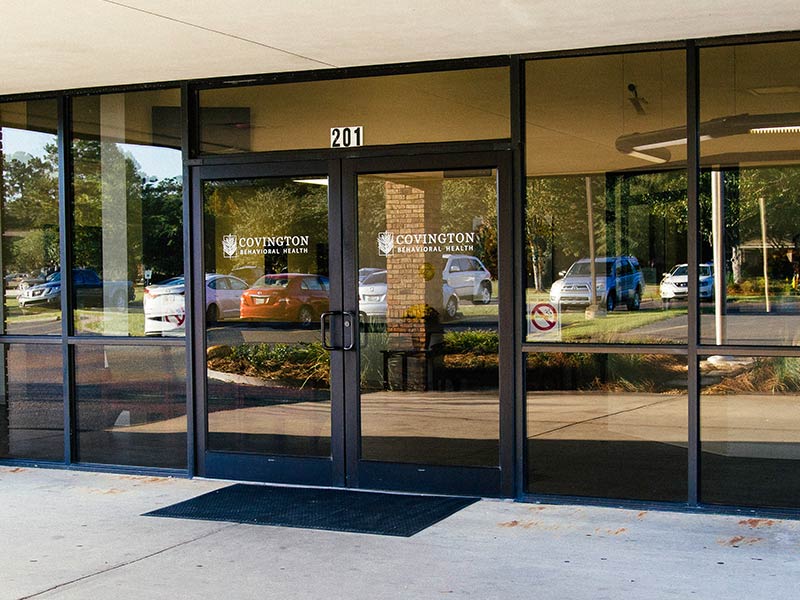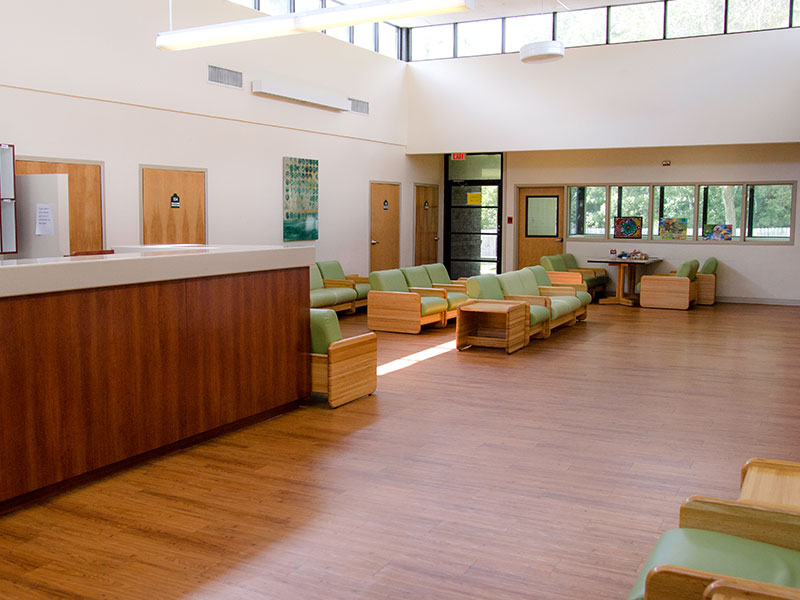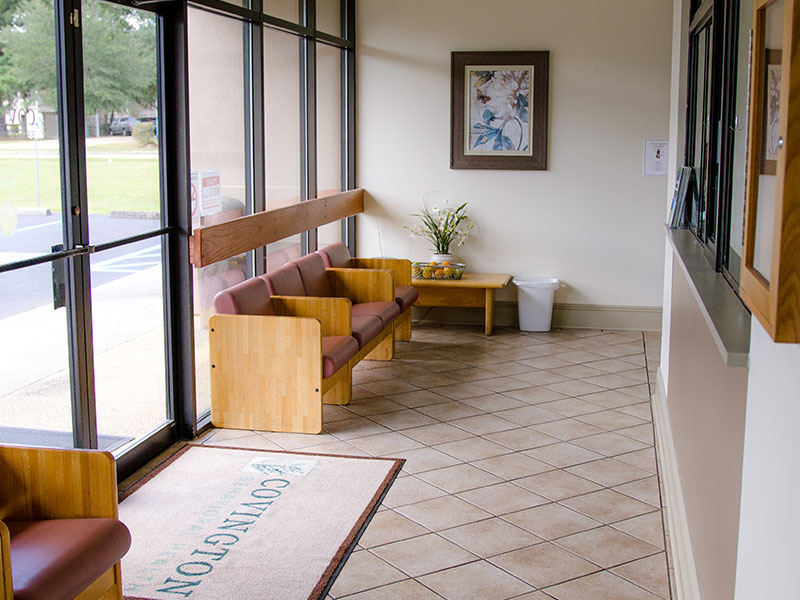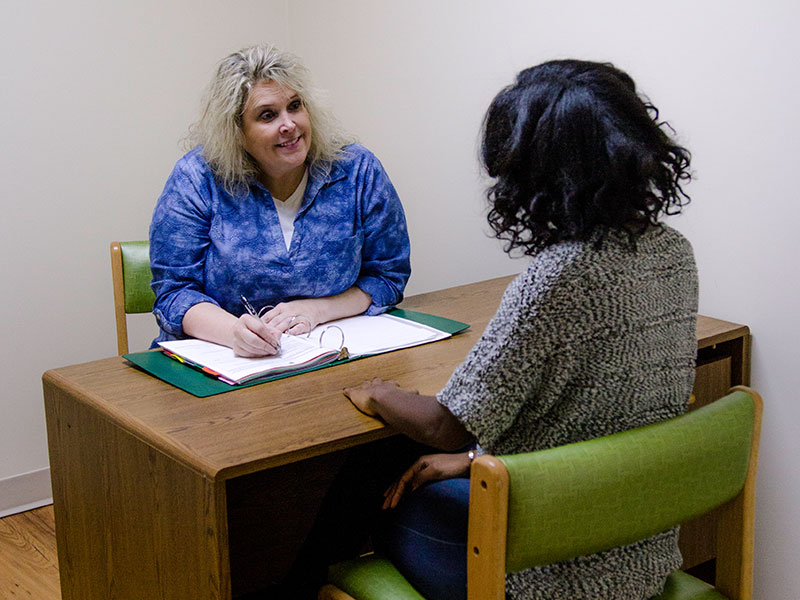At Covington Behavioral Health, individuals can receive expert care delivered by a team of compassionate and experienced professionals. With the help of our center’s dedicated treatment team, it is possible to learn to manage delusional disorder symptoms and live a healthier, happier life.
Delusional Disorder Treatment
Learn more about delusional disorder treatment at Covington Behavioral Health in St. Tammany Parish
Delusional disorder is a type of mental health disorder that is characterized by delusions, or fixed beliefs that do not change even in the face of evidence that contradicts them. Individuals can experience a wide range of delusions. For example, some people may believe that they have extraordinary talents or abilities while other people may believe that they are being watched, tracked, or pursued by individuals who want to harm them. Regardless of the content of one’s delusions, this disorder has the potential to severely disrupt the lives of those who suffer from it.
Fortunately, you or your loved one need not suffer alone. At Covington Behavioral Health, located in Covington, LA, individuals can receive expert care delivered by a team of compassionate and experienced professionals. With the help of our dedicated treatment team, it is possible to learn to manage the symptoms of delusional disorder and live a healthier, happier life.
How to Help a Loved One
Helping a loved one get treatment for delusional disorder
Because of the nature of the disorder, it can be extremely difficult to help a loved one with delusional disorder to find the treatment at a hospital or center that he or she needs. However, there are a number of steps you can take to assist your loved one:
It is helpful to start by simply researching delusional disorder. You might begin by speaking with a treatment professional, reading books about the disorder, or looking through reputable websites. This will give you an understanding of the disorder, but the other major focus of your research should be options for treatment. Each treatment center and hospital has its own unique approach to treatment and intervention, so learning about treatment options can help you determine a few centers and hospitals that may be a good fit for your loved one.
Once you have completed your research on hospitals and centers for delusional disorder, it is time to speak with your loved one. Approach him or her with a gentle, patient, and nonjudgmental demeanor. Remember that he or she is likely already on edge, so it is important that you are a soothing and calming presence for him or her. Share your concerns with your loved one, discuss the treatment centers and hospitals you found, and give your loved one time and space to make the decision to enter treatment by him- or herself. Your job is not to force your loved one into treatment; instead, your goal should simply be to present what you have found and what you are observing to your loved one and gently encourage him or her to seek help.
When your loved one is ready to enter treatment at his or her chosen hospital or center for delusional disorder, help him or her handle the logistics of transitioning into care. For example, you might make appointments with treatment center staff and offer to accompany your loved one to those appointments. Once your loved one has transitioned into care, be an active part of his or healing process and attend any family sessions that your chosen center might offer.
Perhaps most importantly, do not forget about your own well-being. Make sure you are supported by a close circle of family and friends, and make time for activities that rejuvenate you. Consider seeking individual therapy or a support group. It can also be easy to forget the basics, so make sure you are exercising regularly, eating healthy, and getting enough sleep.
Why Consider Treatment
Why consider treatment for delusional disorder at Covington Behavioral Health in St. Tammany Parish
Despite the fact that many people with delusional disorder appear to be relatively healthy when not discussing topics related to their delusion, this disorder has the potential to cause great harm in a person’s life. Should a person’s delusion relate directly to a major area of functioning, the impact can be truly catastrophic. For example, delusions that others are out to harm to the individual can cripple him or her in social interactions, romantic relationships, and work relationships. As a result the person may find him- or herself alone without social support, without a job, and in serious financial trouble. However, with proper treatment at a hospital or center for delusional disorder, it is possible for individuals with this disorder to learn to manage their symptoms and increase their ability to function well in daily life.
Types of Treatment
Types of delusional disorder treatment offered at Covington Behavioral Health in St. Tammany Parish
Covington Behavioral Health is a 104-bed residential treatment center that provides personalized, comprehensive care for adolescents ages 10-17 and adults age 18 and older who have experienced acute changes in their emotional and mental well-being and need psychiatric stabilization.
At Covington Behavioral Health, care for people who have been diagnosed with delusional disorder is provided by multidisciplinary teams of talented and dedicated professionals, including psychiatrists, medical psychologists, nurses, nurse practitioners, social workers, counselors, activity therapists, and mental health technicians. Among the members of our center’s staff who have specialized training are our full-time staff dietitian, social workers who are certified in gerontology, and physicians certified in forensic psychiatry and addictionology.
The care that our patients receive at our center incorporates a variety of treatment techniques and therapeutic modalities, including cognitive behavioral therapy (CBT) and dialectical behavior therapy (DBT). We place a premium on conducting thorough assessments on each patient at our center to ensure that we are able to develop individualized treatment plans that address each person’s specific strengths, needs, and treatment goals.
Each patient’s time at Covington Behavioral Health will be a unique experience based upon his or her specific strengths and needs. Depending upon those unique factors, a patient’s treatment at our hospital may include the following elements:
Medication management: Some individuals with delusional disorder may benefit from having certain prescription medications incorporated into their treatment plans. Covington Behavioral Health patients who meet this description will have the opportunity to meet with our psychiatrist and nursing staff on a regular basis to receive medication management services.
Detoxification: Covington Behavioral Health is not a substance abuse treatment center; however, we do understand that prospective patients may have struggled with substance abuse in addition to their challenges with delusional disorder. To best serve these individuals, we provide detox services at our center for individuals who been abusing alcohol, prescription painkillers, and certain other drugs. After they have rid their bodies of the substances that they have been abusing, detox patients will transfer directly into residential treatment to receive care for their mental health disorders.
Individual therapy: Patients in the inpatient program may meet with a member of our social service staff (LCSW, LMSW, LPC, or PLPC) or nursing staff (RN or LPN) for individual therapy as needed. Individual therapy at Covington Behavioral Health allows patients to address issues that they may be hesitant to bring up during group sessions, provides them with one-on-one feedback and guidance from experienced professionals, and helps them to develop effective skills for managing the symptoms of delusional disorder.
Group therapy: Group therapy sessions are fundamental elements of treatment at Covington Behavioral Health. Group therapy provides a structured yet dynamic environment in which participants can share their insights and experiences, learn from the contributions of fellow patients, and practice healthy interpersonal skills such as effective communication, empathy, and giving and receiving support. The following are among the groups that a patient who is being treated for delusional disorder at our center may participate in during his or her time at Covington:
- Activity groups
- Creative therapy groups
- Dietary groups
- Process groups
- Psychoeducation groups
Group therapy sessions, which are typically offered at least five times during each treatment day at our center, are led by nurses, activity therapists, mental health technicians, and members of our social services staff.
Family therapy: At Covington Behavioral Health, we understand that an individual’s struggles with delusional disorder may impact his or her entire family. With family therapy, loved ones of Covington patients have the opportunity to address how they have been affected by the patient’s mental health problems, learn how to strengthen family bonds and improve intra-familial relationships, and develop the skills that will allow them to provide the best possible support as their loved one continues in recovery following the residential phase of his or her treatment. Family therapy sessions at Covington Behavioral Health are typically conducted by the patient’s case manager and may be scheduled on an as-needed basis or by request.
Discharge planning: We provide robust discharge planning services to ensure that each patient and his or her family has a thorough plan that identifies the referrals, community-based services, and other support services that will put the patient in the best position to maintain and improve upon the progress that he or she made while in treatment for delusional disorder with us.
At Covington Behavioral Health, our ultimate goal is to provide the focused, effective, and personalized care that can improve the quality of life for all who are entrusted into our care. For more information about our services, please do not hesitate to contact us at your convenience. We look forward to answering all of your questions and helping you determine if Covington Behavioral Health is the perfect place for you or your loved one.





